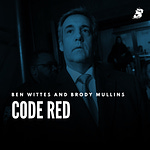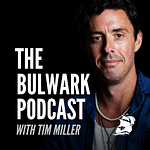Fox launched the Big Lie based on a random email from a woman in Minnesota who heard voices in the supermarket. And its viewers wanted to be told that Trump was robbed of reelection. Brian Stelter has the receipts, and joins Charlie Sykes for our live show in Washington, D.C.
show notes:
https://www.simonandschuster.com/books/Network-of-Lies/Brian-Stelter…
















